This ain’t an effing talk show – Peaches on doco Teaches of Peaches
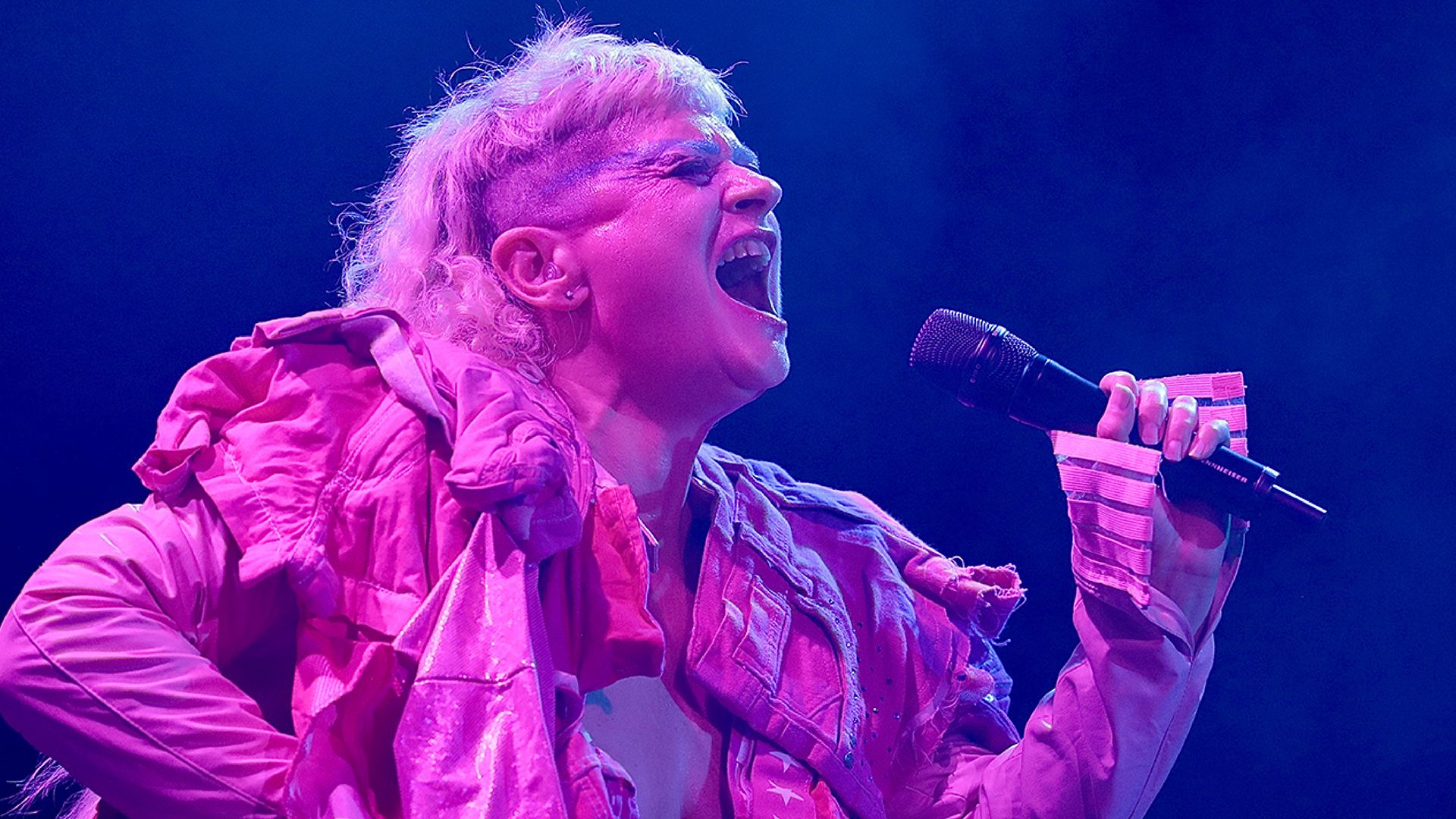
There’s only one peach with the hole in the middle… Peaches joined Steve Newall for a conversation about new doco Teaches of Peaches, available to watch at home now.
Teaches of Peaches is the best music doco I’ve seen this year. Filmed in 2022 as the iconoclastic performer prepared for The Teaches of Peaches Anniversary Tour, and bursting with performance and archival footage, Philipp Fussenegger and Judy Landkammer’s film captures both the Peaches of the present and documents her journey from Canadian music teacher into the international creative force we know and love today.
The Teaches of Peaches album and accompanying tour—which reached New Zealand and Australia in 2002 (with performances at Fu Bar and Big Day Out etched in my memory)—were both celebratory and challenging in sexual performativity and permissiveness. It really was a different world, which speaks to how many cultural doors Peaches kicked in with her messages of empowerment, LGBTQIA+ rights, and unashamed sex positivity.
Clearly, a lot can—and did—change in twenty years (not that the more dedicated of bigots may have noticed).
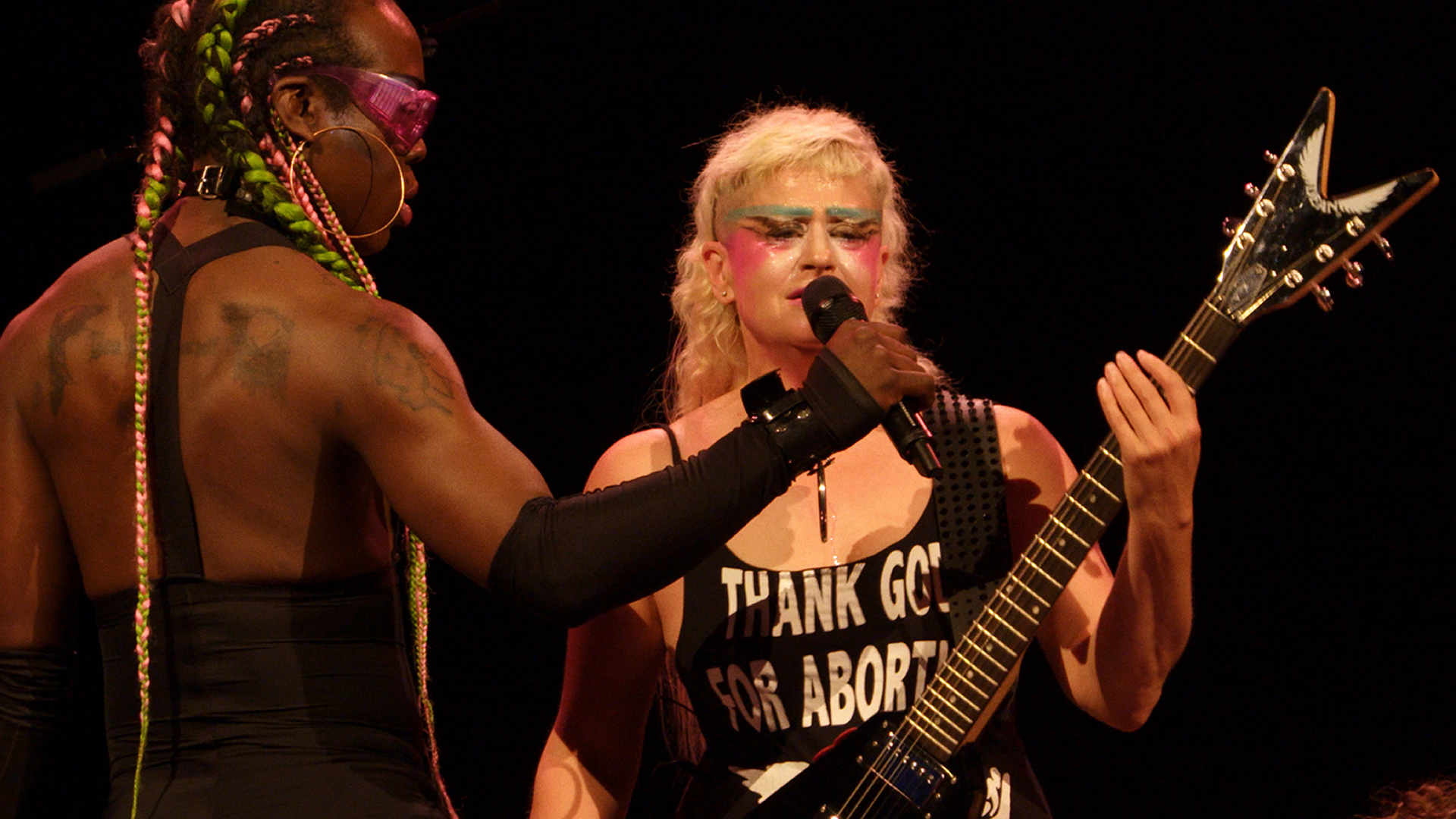
As Peaches tells me, the new doco project was pitched to her by a producer who wanted to make a career-spanning documentary—something that wasn’t of interest to Peaches until they were planning a 20th anniversary tour for her breakthrough album. That’s when a doco she really wanted to make began to take shape. “They were very receptive and open to having my input,” Peaches tells me, “Which I was really happy about because I also presented them with all my archival footage. You know, there’s a lot of archival footage”.
This turns out to be a significant understatement. “I have probably like 8000 hours of footage from every kind of medium you know, from like VHS to Super Eight, Hi8, MiniDV you know, every format. I even had like Betamax you know, stuff like that. I have tapes from all those mediums.”
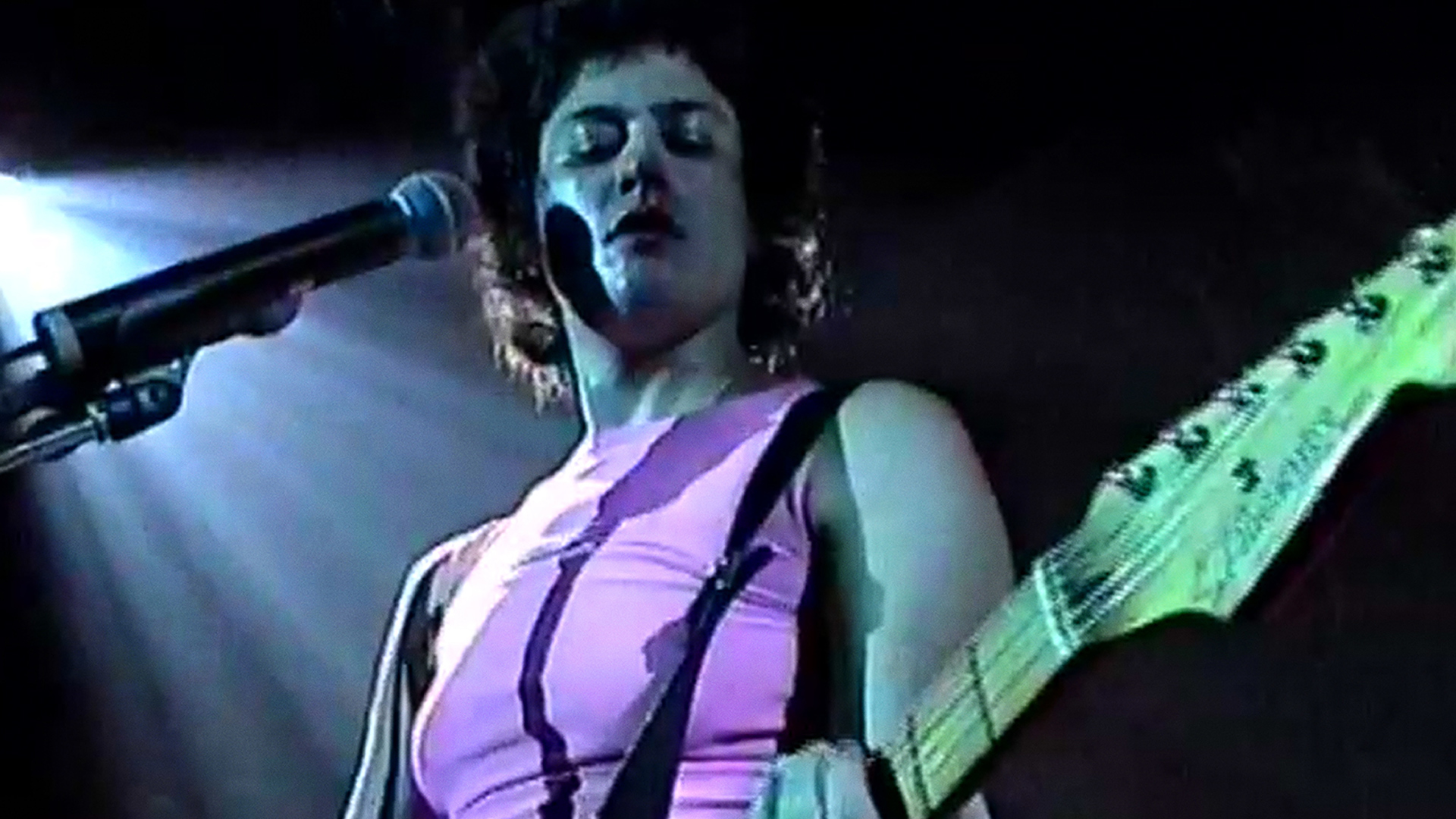
Don’t expect sequences where an artist is confronted by distantly-remembered footage. Peaches is very familiar with the archival material, but acknowledges what’s different about her younger self: “More spicy, like, unsettled or with a lot of fight going on. So I feel a little more at peace with myself.”
TV interview segments included in Teaches of Peaches also capture a generation of music press having to navigate new terrain. As Peaches reflects on these conversations, “What strikes me is that the language was not there in sort of the universal language of how to express sexually, non-gender non-binary kind of aspects or explorations. So, yeah, that strikes me a lot that there’s no words for those. There’s no definitions—or lack of definitions.”
“I think it was just mostly just questioning,” Peaches says about creating with a high level of freedom. “With Peaches, developing Peaches, it started with the question, and they were put into a form that was not just a question in my head, but communication, and then seeing how it’s connecting with people and understanding, and then it gave me more confidence to do more and more and to understand myself more and more.”
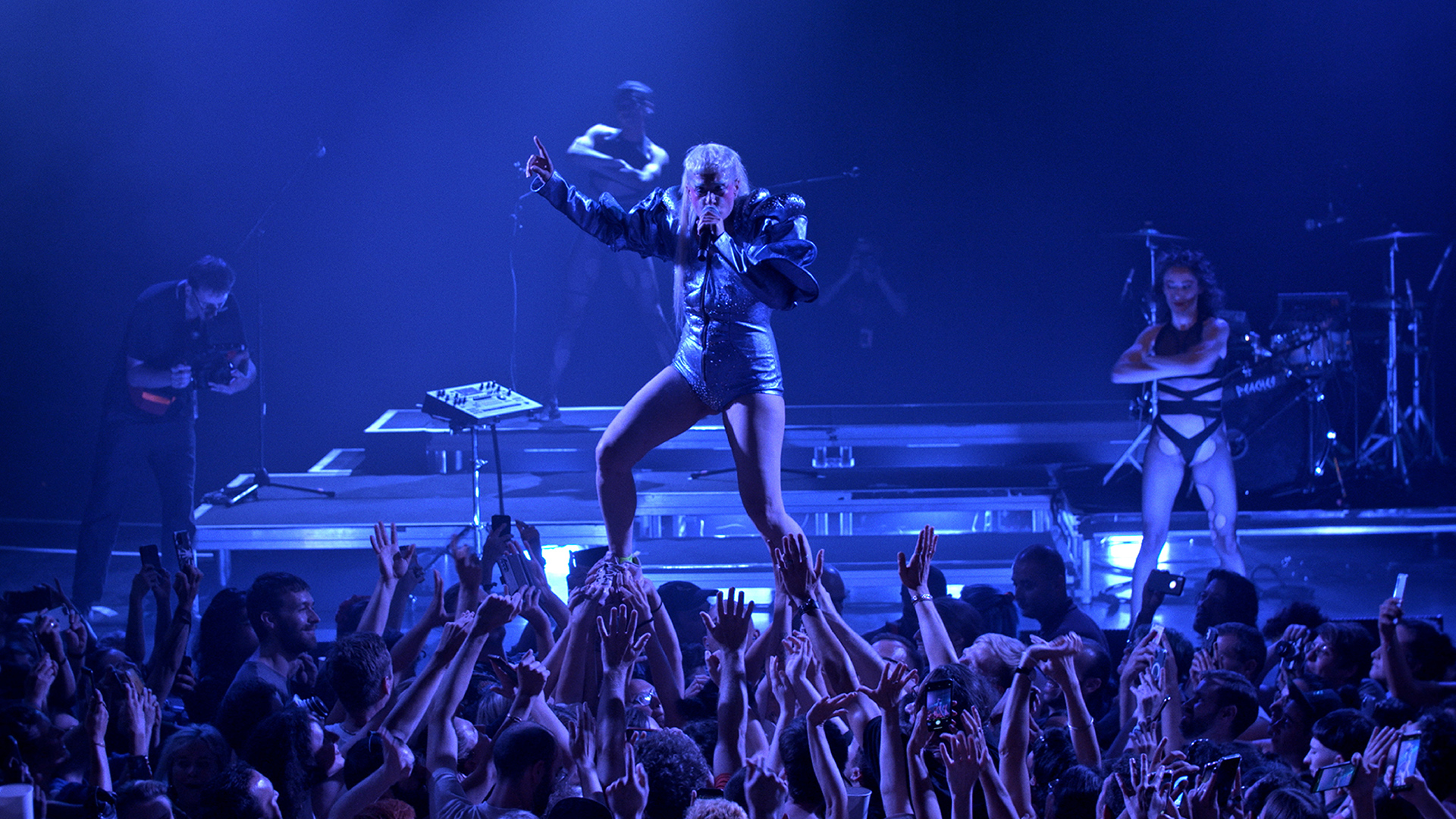
Teaches of Peaches also captures preparations for the 20th Anniversary Tour from Peaches base in Berlin. When seeing that show at Auckland’s Powerstation last year, I was struck by how Peaches had incorporated the Roland MC-505 Groovebox—the key instrument in making the album—into the show. Somehow going back to basics while boasting spectacular costuming, performances and choreography, it made for a much more interesting experience than the overly dutiful examples of rolling out an album we see on the nostalgia circuit.
“Performatively that’s why I started the show as like, ‘I’m way too old to be doing this’, coming out with a walker and, like, this performative way of revisiting that stuff,” she explains. “I’m all about the performance and the musicality, but you know, when I’ve seen some people, they just do the songs—which is great, but that’s not my way. Let’s make a point of ‘I understand that it’s an old album.’”
As the concerts attested, Peaches’ band was made up of fantastically talented performers. One of the many treats in store within the documentary is getting glimpses of their journey to become part of the Peaches show. That includes moments working with stylists on aggressive haircuts that channel their personality or taking detailed stagecraft advice on how to interact with the audience from Peaches’ decades of extensive experience.
“That’s Bláthin Eckhardt,” Peaches says of the latter scene. “I think her life changed the most of everybody’s after that. She’s a contemporary dancer and quite good guitarist, musician, and she’s always tried to incorporate it. I think this just gave her a push to, you know, really understand who she was, and she’s gone on to work with other productions. But with enhancing this personality and who she is, it’s really exciting. To watch her during the whole tour, you know, blossom was really exciting.”
View this post on Instagram
That’s a response that led me to ask, besides the functional aspect of musicianship, what was Peaches looking for in terms of the alchemy, the family she was putting together to take on the road for so long?
“I was looking at just the people who were excited to do this, and that had the stamina and the talent—but mostly that they were excited, and they wanted to do it,” she says. “Because you could have the best players in the world. But they have to be on the same page as you or else it’s not going to feel organic, or it’s not going to feel like they’re part of the group.”
“I feel very privileged and lucky that I have such a, for lack of a better word, a brand, a style, an image, a statement. So you know whether you’re a part of it or not.”
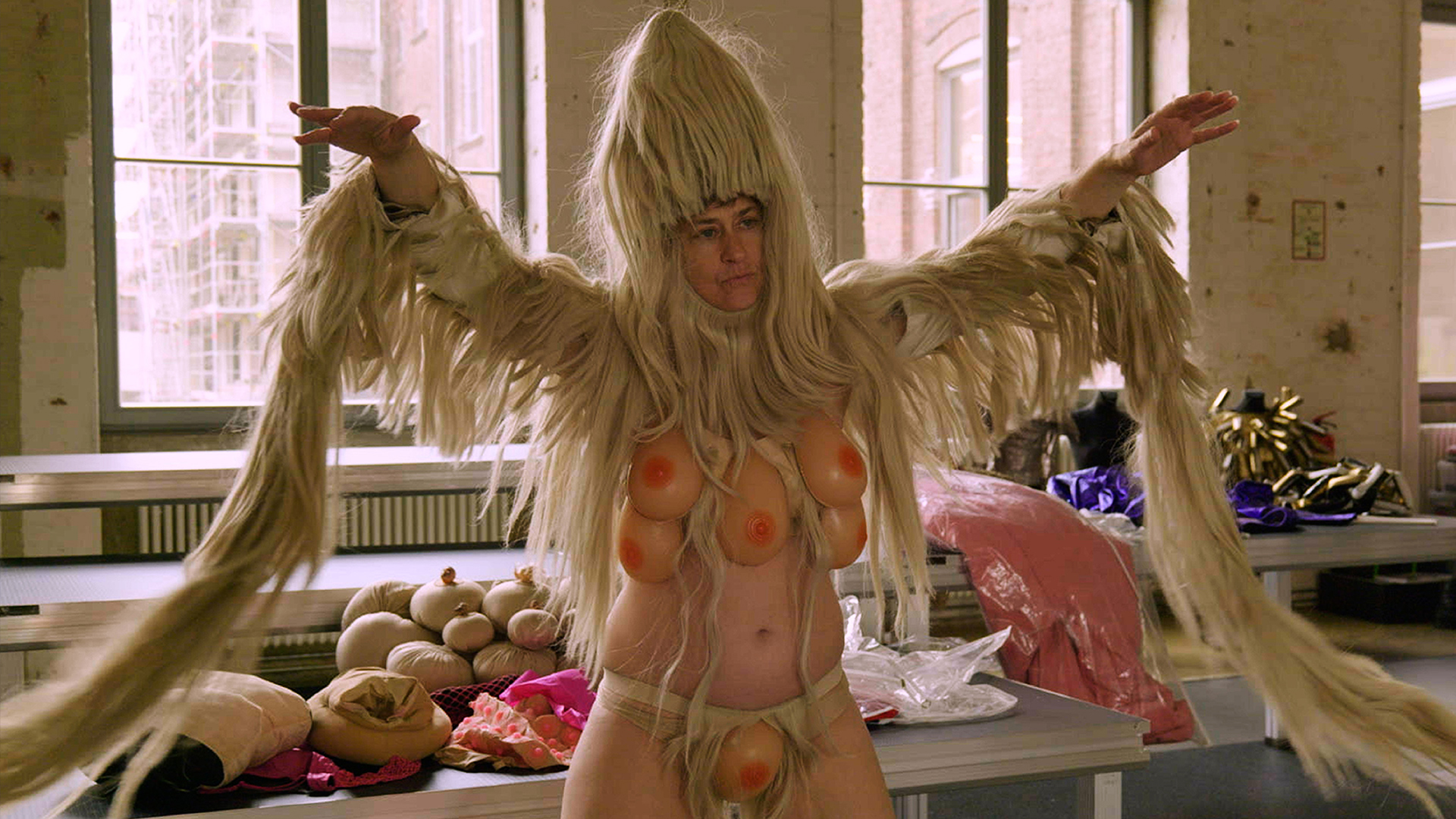
Peaches’ conversation turns to drummer Tif Lansom (“they’re obviously insanely talented”), who she describes as having a very big personality—but whose look evolved across her first few shows. Costuming and aesthetic has such a big role to play in Peaches performances, and perhaps even more so with this tour, requiring a lot of thought and preparation.
“I had to work out the outfits,” Peaches says. “I’ve never asked any dancer or any musician to be topless or naked or anything. I’ve made them wear funny things but that is their choice. With Tif at the beginning, she was like, ‘oh, I’m a drummer, I don’t want to get a rash. I gotta wear this on my legs and, you know, I have to wear this on my top because I don’t want to, you know, shake around.'”
“By the fourth show, she was just like, ‘I feel so free’,” Peaches recalls. Both doco and concert audiences can confirm a big departure from Lansom’s initial wardrobe thoughts (and a look that might not be so suited to her current gig drumming for Shania Twain). “She also had huge revelations. It was just really exciting to watch.”
View this post on Instagram
Another striking visual element of the tour came from a chance encounter while watching chessboxing, when someone next to Peaches said “I have a big dick for you”.
“Fuck off, who are you?’” she replied, but this turned out to be the origin story of an incredible stage prop. “No, no, I make inflatables,” Peaches recalls him saying. “I have this idea.” It turned out this stranger was part of duo Plastic Fantastic—and one of their inflatable creations he’d always thought looked… like a dick.
“It’s like this tube that rolls out,” Peaches says. And he’s like “It’s got a hole on the end of it. And if you just strap a fan to it, there’s even a zipper on the side, you could walk on people.”
View this post on Instagram
“Sometimes people just have visions for me, sometimes I see what people do, with the vision for what I do. I love that. Ideas roll out, and the same with costumes. You meet people on the way and things develop and as people know who I am and what I do, they have ideas for me.”
Before the band took the stage at the Powerstation (at which point they became the sole focus of everyone at the show) I found it interesting and inspiring to see who’d turned up to see Peaches, and how this had changed over twenty years. For Peaches, the audiences on the anniversary tour felt like a coming together.
“I really felt like it was like the moment that everything clicked,” she tells me. “Not that it didn’t click before, but I really felt the love and I felt that people understood where it came from, and why they’re there. And they’re ready to be a part of this. And it just felt really, like perfect timing.”
This interview has been edited for length and clarity. Originally published by Flicks on July 15, 2024.




















